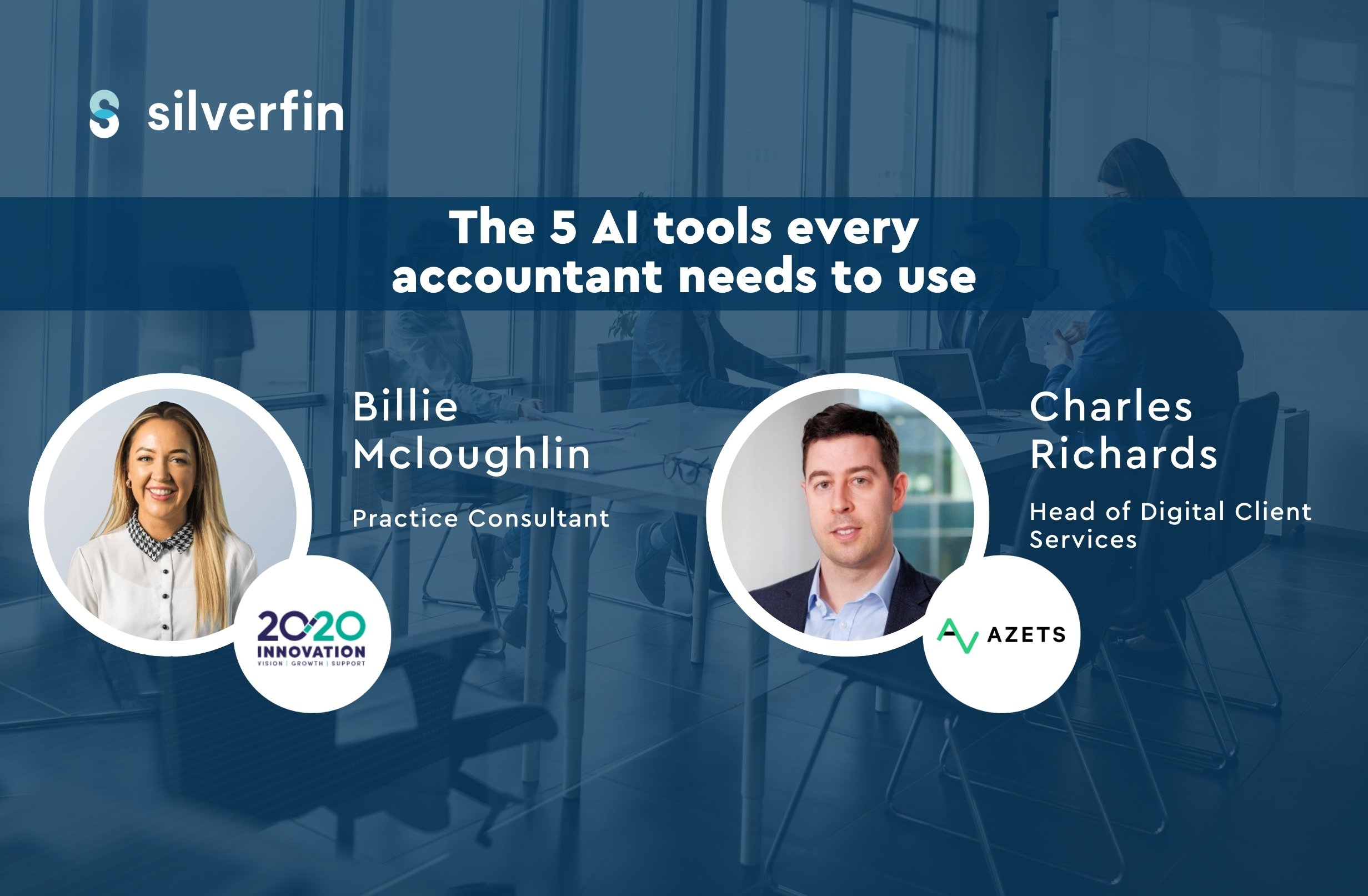Are you tired of drowning in a sea of manual data entry and repetitive tasks, all while struggling to meet the ever-increasing demands of your clients?
The problem is clear: Traditional accounting methods, like Excel spreadsheets, can stifle productivity and hold your firm back. With dedicated accounting software, you can boost productivity, reduce manual tasks, and free up valuable time for growth.
But there’s a solution, one that promises to revolutionise how you work and propel you toward enhanced productivity and efficiency.
Cloud accounting software.
It does all the heavy lifting for you so you can stay focused on high-value activities and develop new revenue streams.
But is it worth making the switch? Here’s how accounting software improves productivity backed up with research.
How Accounting Software Improve Productivity
Ready to explore how accounting software can be the productivity tool your firm needs? Discover how automation, real-time data, and seamless collaboration can transform accounting productivity.
Let’s dive in.
1. Enhanced Efficiency Through Automation
Manual data entry and repetitive tasks can be major productivity drains. With automation, accounting software reduces these burdens, letting accountants focus on value-adding work.
According to a research paper detailing the impact of accounting software on business performance, it has a direct effect on a firm’s efficiency. It’s crucial for staying competitive and the long-term sustainability of the business.
But how does accounting software achieve enhanced efficiency?
Through automation.
By automating compliance work and creating standardised templates for working papers, accounting software minimises errors and cuts down on manual work, enhancing productivity and accuracy across your firm.
How does this work in practice?
With a tool like Silverfin, all your client data is automatically pre-populated from the data hub in real-time and integrates with your financial statements and tax workflows.
Instead of year-end accounts taking multiple hours to complete, you can do it in minutes and deliver a consistent, high-quality service to your clients.
All while saving yourself time and improving efficiency.
RELATED: How To Increase Profitability in Accounting With Seamless Data Integration
2. Streamlined Collaboration for Seamless Workflow
Endless email trails.
Missing attachments.
Switching in and out of client files and applications.
It’s tedious, time-consuming, and stifles productivity.
So what’s the solution?
A built-in communication portal that houses all your internal and client communication in one place.
With cloud-based accounting software, your team can collaborate from anywhere, enhancing productivity and business management through real-time access to the latest data. Work on the same client file, assign tasks, and tag your manager when it’s time for review.
The client portal gives your customers more regular touchpoints and makes it easier to collaborate on working papers, reports, or financial statements.
By streamlining collaboration, you can ensure everyone is always on the same page, leading to faster decision-making—no more unnecessary bottlenecks and fostering a more cohesive and productive work environment.
3. Centralised Client Data for Easy Access
If you rely on Excel spreadsheets, you probably juggle data and track expenses from multiple sources, leading to confusion and inefficiency.
Plus, there is a high chance your data is inaccurate.
By having to wait to import the data from your clients manually, it’s no longer fresh, meaning you’re operating at a disadvantage.
Centralising data into one secure hub lets you access and manage all client information—whether cash flow or tax records—boosting productivity and data reliability.
It removes data silos and empowers your firm to make decisions based on real-time data.
That’s not all.
By operating from a single source of truth, an uptick in productivity is a natural by-product. You no longer have to waste time importing files. Version control issues are a thing of the past, and you can automate workflows and reporting to save valuable time.
Here’s a detailed breakdown of how a centralised data hub can improve your productivity:
- Streamlined Data Access: Centralised data means that accountants no longer need to hunt through multiple systems or spreadsheets to find the information they need. This streamlines their workflow and saves valuable time that would have been spent searching and cross-referencing data.
- Enhanced Data Accuracy: When all data is centralised, there’s a single source of truth. This reduces the risk of discrepancies, inaccuracies, or data entry errors that often occur when information is scattered across various sources. Accountants can be confident that they’re working with reliable data.
- Improved Collaboration: A centralised data repository allows for better collaboration among team members. Everyone can access the same information, making it easier to work on tasks together and maintain consistency in client service delivery.
- Quick Decision-Making: With all relevant information readily available, accountants can make faster and more informed decisions. They don’t have to wait for data to be gathered from multiple sources, which can be time-consuming and delay decision-making.
- Efficient Reporting: A data hub simplifies the process of generating reports and financial statements. Accountants can create these documents with greater ease and speed, reducing the time spent on report preparation.
- Reduced Risk: Centralised data is easier to manage, monitor, and secure. This reduces the risk of data breaches, loss, or unauthorised access, which can be a significant concern when data is dispersed across various locations.
RELATED: Ditching Excel for Cutting-Edge Software Solutions: How To Organise Work in an Accounting Practice
4. Accurate Reports for Business Planning
Accuracy in financial reporting is critical. Accounting software enhances productivity by ensuring precise data and enabling informed, real-time decision-making.
When you’re able to pull reports from a single source of truth, it has the following business and productivity benefits for accountants:
Data Integrity and Consistency: Accounting software guarantees the integrity and consistency of financial data. By centralising client information and automating data entry, it minimises the risk of errors and discrepancies. This is a critical foundation for creating accurate financial records.
Real-time Insights: Gone are the days of waiting for weeks to compile data for reports. With real-time data synchronisation, accountants can access the most up-to-date information to optimise financial management. This means that reports reflect the current financial status of clients, enabling proactive decision-making.
Comprehensive Financial Analysis: Accounting software offers robust data analysis tools, allowing accountants to dive deep into financial data. Whether trend analysis, benchmarking, or monitoring key performance indicators, the software empowers accountants to gain insights crucial for sound business planning.
5. Cross Platform Integration
Embracing cross-platform integration is an indispensable strategy for modern accountancy firms that want to boost productivity and streamline their work processes.
Cross-platform integration within accounting software ensures data flows seamlessly from all sources, improving productivity and reducing time spent on data entry. Accountants no longer need to grapple with multiple data entry points or data silos, reducing the risk of errors and inefficiency. With all financial information accessible in one place, accountants can work more efficiently.
Another benefit is access to real-time data. Your financial information is always up-to-date, eliminating the lag in data synchronisation. Accountants can also view and manage client data from various sources in one location, simplifying data access and reducing complexity.
All of this works together to help accountants provide a higher level of service to their clients. They have access to a complete financial picture, enabling them to respond promptly to client inquiries and offer more informed advice.
This innovative approach revolutionises how accountants interact with their data, collaborate with team members, and serve clients.
6. Improve Scalability for Your Firm
As accounting practices expand, adapt to new regulations, and welcome additional clients, their software tools must scale with them. Modern accounting software is built for scalability, allowing firms to manage growth efficiently, which in turn boosts productivity and client satisfaction.
Think of it this way.
As your accounting firm grows, the volume of work naturally increases. Without scalable software, this growth can lead to bottlenecks and decreased business productivity.
Then, there are the varying needs and complexities of your clients.
Accounting software helps you accommodate everyone. Whether it’s different tax regulations, reporting requirements, or unique financial structures, it gives you the ability to meet these needs efficiently.
Lastly, it improves your scalability via cost-effective growth.
You can diversify your services and offer more value to clients by integrating additional tools and features. This allows you to expand into value-adds like advisory services without needing costly or disruptive changes to grow your firm.
How Silverfin Helps Improve Productivity for Accountants
How you manage your data and compliance processes (for any business) is crucial for your success.
By sticking to manual processes, you’re inviting risk and creating more challenges than solutions for your accounting firm.
The only way to keep your firm competitive, improve productivity and streamline your accounting tasks is to modernise your tech stack by switching to powerful accounting software like Silverfin.
Here’s how Silverfin’s core features reduce your workload and give you back time:
- Automation of Compliance Work: Automate and streamline workflows for digitised working papers, accounts production, and management reporting. This means you can say goodbye to labour-intensive tasks and instead focus on strategic activities.
- Improved Collaboration: With a built-in client portal, you can communicate with colleagues and clients from a central hub. It saves you time from scrolling through endless emails, speeds up tasks, and empowers clients to keep up-to-date with their accounts.
- Centralised Client Data Hub: Managing data from various sources can be a headache, leading to inefficiency and errors. Silverfin centralises all live and historic client data in the cloud, ensuring easy access to the most up-to-date information and financial transactions. Working from the cloud means your team has the flexibility to work from anywhere, access documents, and perform tasks seamlessly.
- Data Analytics and Reporting: Silverfin empowers you with accounting data analytics and reporting tools that go beyond the basics. You can have more meaningful conversations with your clients, set triggers, and establish automated alerts for firm-wide monitoring, benchmarking, and trend analysis.
- Long-Term Support and Customer Success: Implementing new software can be daunting, but with Silverfin, you’re not alone. A dedicated Customer Success manager with expertise in change management will work with you through onboarding, go-live, and roll-out. The 24×7 Helpdesk is ready to assist with email and online chat support, and you’ll find an extensive library of learning resources at your fingertips.
Your Path to Enhanced Productivity
The journey to improved productivity for accounting firms begins with the adoption of accounting software. Once integrated into your business, your financial operations can reap the benefits of streamlined workflows, effective collaboration, real-time data, and a competitive edge in the market.
It’s time to leave the pain of inefficiency behind and step into a world where productivity, efficiency, profitability, and service quality are the norm.
Ready to leave behind manual, tedious tasks and switch to accounting software that will improve your firm’s productivity?
Book your Silverfin demo today and set your accounting firm up for better accuracy, capacity, and opportunity.
Don’t remain stuck in the era of manual data entry; embrace the future of accounting with Silverfin’s cutting-edge platform.
Frequently Asked Questions
Do you still have questions about how accounting software can improve productivity? Here are some answers to the most commonly asked questions.
Accounting software improves productivity by automating compliance work, streamlining collaboration, and centralising client data. It reduces risk by minimising manual errors in financial records and ensuring data accuracy, leading to more reliable financial reporting and freeing up accountants’ time to focus on higher-value activities.
Accounting software can automate tasks such as data entry, calculations, report generation, and accounts production, reducing the need for manual work. You can also create standardised templates to ensure accuracy and create a uniform client experience.
Yes, with features like data analytics and reporting tools with access to a real-time data hub, accountants can have more meaningful client conversations, set up alerts, spot trends at a company or industry level, and provide a better service.
Yes, accounting software like Silverfin integrates with multiple bookkeeping systems, saving you time from jumping between applications and providing a single source of truth.
AI features, like AI mapping, help standardise client data quickly, reducing manual data transformation and errors.













